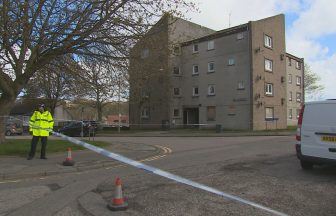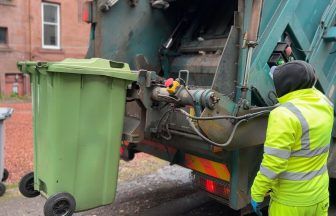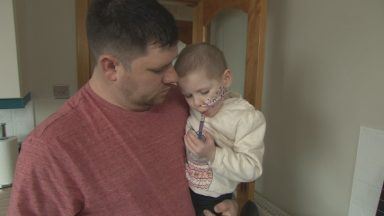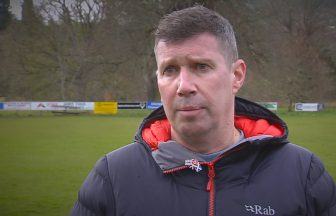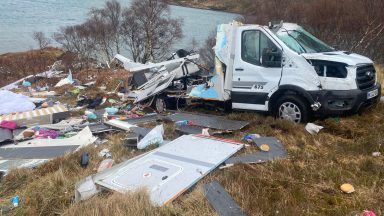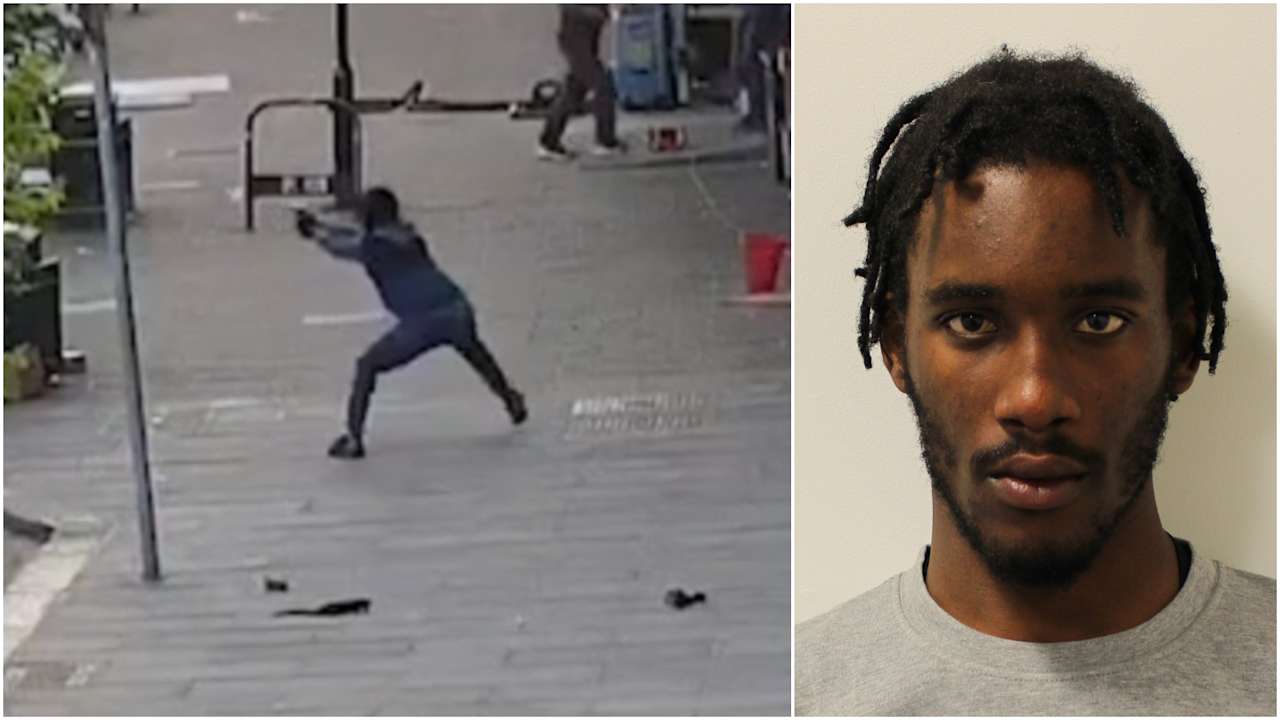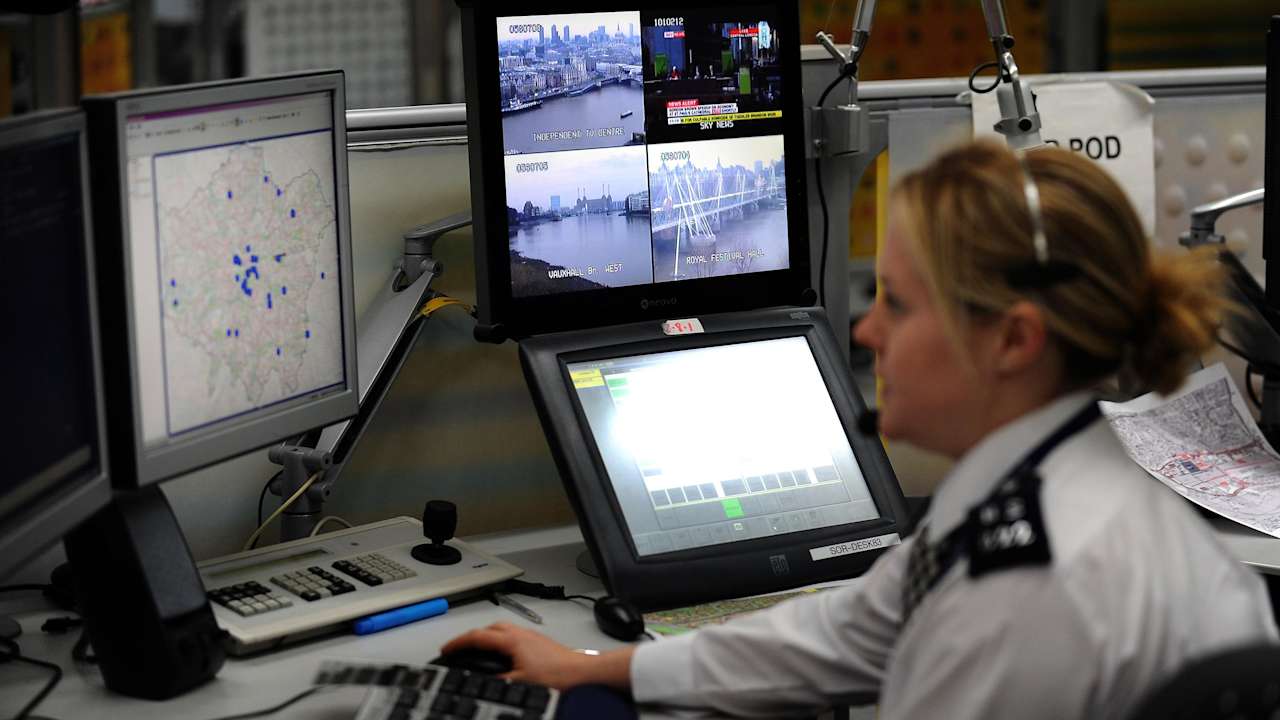A glimpse through the window of the Covid ward offers a sense of brisk busyness and efficiency.
Staff in gowns scrub up and adjust visors, flit in and out of patient rooms, moving quickly and quietly.
It is the 102nd week of the pandemic and two years ago, this ward at Raigmore Hospital in Inverness didn’t exist.
‘Constant pressure’
Acute medicine consultant Dr Grant Franklin is on his 12th consecutive day of duty; some of those shifts have been 18 hours long.
“It’s been constant pressure, unrelenting,” he says. “Without the sort of teamwork the NHS is famous for, it would have been impossible to get through.
“There was a lull around Christmas when the number of people in hospital with Covid fell dramatically, but then it went up very, very sharply – six-fold in just over a week.
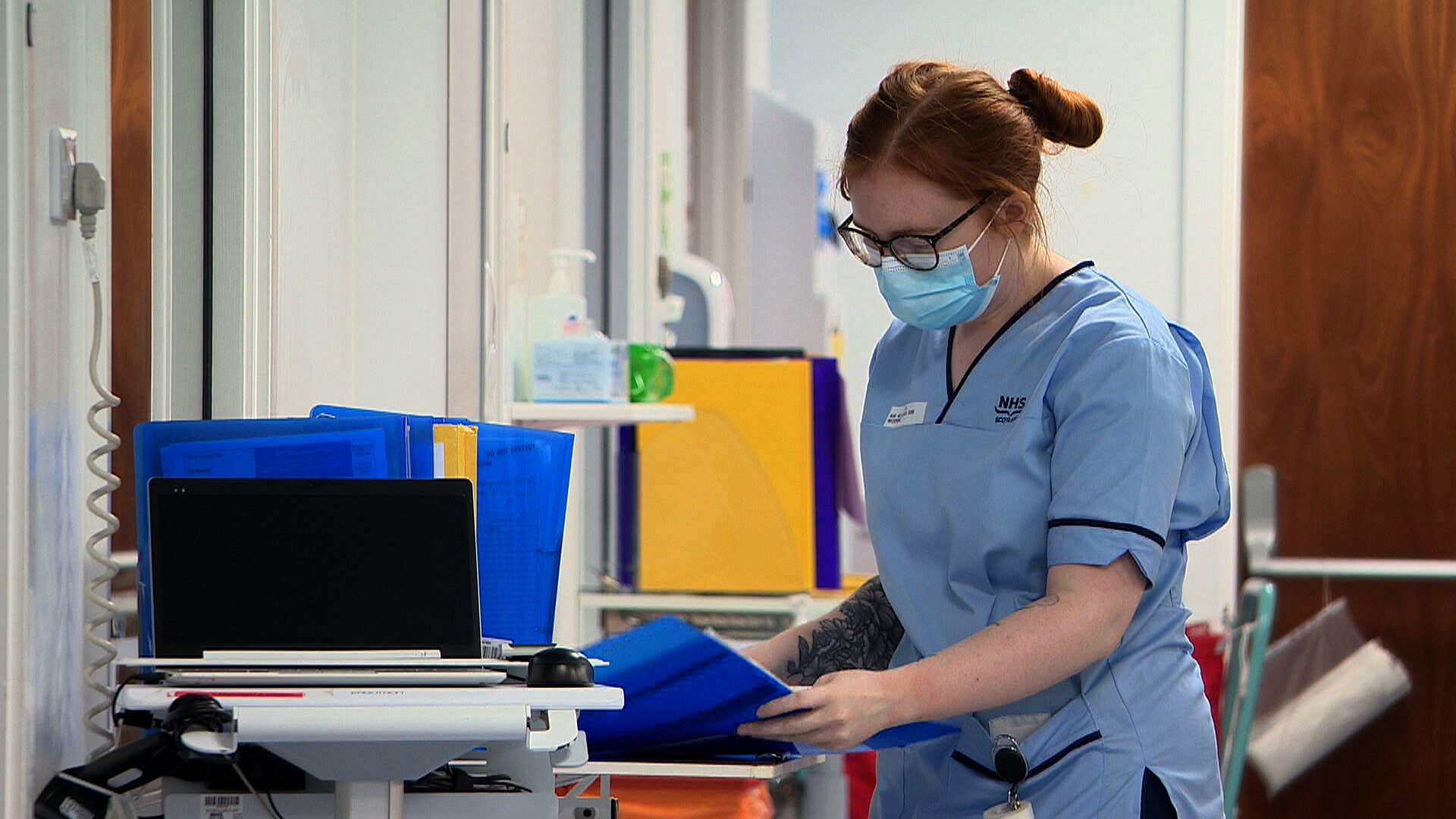 STV News
STV News“Our numbers are not huge compared to places down south, but on a percentage basis it is very significant and the impact on other services has been dramatic.
“We have had to stop services at times, and I think it’s been very difficult for all the other parts of the NHS, not just us dealing directly with Covid.”
‘We would be broken’
The Covid ward is off-limits as STV News visits – only relatives of those near the end of their lives are allowed through the double doors.
Senior charge nurse Karen Cumming tells of the challenges faced by her team over the past two years.
“We have had to create a completely new environment,” she says. “Staff have ended up looking after patients that they wouldn’t normally have looked after, so we have had lots of training and staffing challenges.
“The first wave of patients were very sick and we had a lot of people that had to be ventilated and moved up to the intensive therapy unit.
“At the moment there are a lot of patients with a vast variety of different problems, but they just happen to have incidental Covid.
“Our staff are having to adapt all the time and change their thinking and learn new skills to be able to look after these patients.
“We work as a really good team across the ground floor – if we didn’t support each other we would be broken.”
Patients being unable to see their families is one of the hardest things that staff on the Covid ward have to deal with.
“We can only let people in if patients are at the end of life,” says Karen. “That can be really tough and emotional, not only for the family but for the staff as well.
“We have nursed them for so long and got to know them really well.”
‘Incidental Covid is unusual’
Next to the Covid ward is general admission, where ambulances arrive with patients who are whisked in through a side door.
People lie in beds as staff tend to them, communicating through visors and masks. Curtains are whipped round an elderly lady who is bleeding from the back of her head.
Strokes, heart attacks and pneumonia are regular visitors here – but Covid is frequently lurking too.
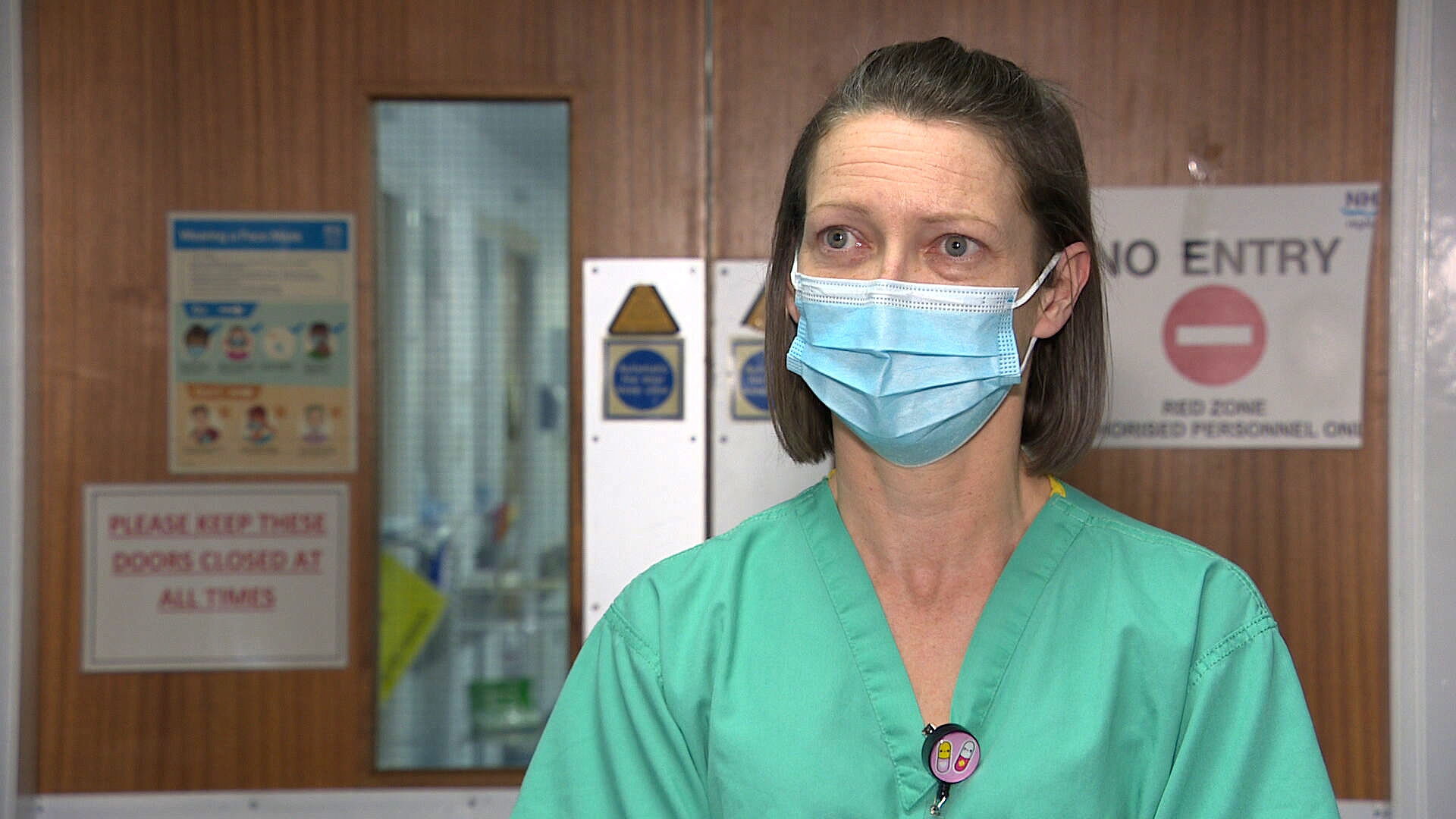 STV News
STV News“Every person is screened for Covid when they come in,” says Dr Franklin.
“Incidental Covid is quite unusual. The elderly person who has had a fall, that is more likely if you are unwell with Covid.
“Someone with a stroke – strokes are common if you have sticky blood, and you have that with Covid.”
‘It’s going to be tough’
Is the Omicron wave coming to an end? With restrictions easing, there is hope that’s the case across Scotland, but medics at Raigmore aren’t letting their guard down just yet.
“I still worry that we are going to have a rise before a fall and I think the next couple of months is going to be tough throughout the NHS and tough for patients and families,” says Dr Franklin.
“We are very aware that the access to the NHS has been sub-optimal for many people for a very long time. We would much rather they could get the proper access that people expect, so the sooner we can get back to that the better – but we are not there yet.
“For a number of periods we have been very, very close to capacity in the Covid ward and that’s the case now.
“If we breach that capacity, it will have an affect on surgery, elective and emergency surgery, on the admissions ward.
“If we get just a few more Covid patients, we will have to expand. We have a plan for different situations, but we want to avoid that by keeping the Covid numbers in hospital as low as we possibly can.”
‘We’re not heroes’
‘Heartbreak’, ‘Helpless’ and ‘Human’ are all written on a ‘word wall’ at Raigmore – designed to help staff express how they feel.
Others include ‘Support’, ‘Safety’ and ‘Strength’.
As the pandemic first gripped the country, there were weekly claps for carers as rainbows adorned windows in gratitude.
But charge nurse Mhairi Forbes, who works in the high dependency unit, doesn’t feel like a hero.
“When you come into a job like this, you do whatever you can to help people,” she says.
“It’s not going to last forever that people think that way. It’s becoming normal to everyone and now people want to get their lives back, they want to get their NHS back. They want to get the treatment back that they deserve.”
As well as offering round-the-clock care, Raigmore staff also raised more than £10,000 for Unicef to fund Covid vaccinations in some of the world’s poorest countries.
They published a book called ‘Smile With Your Eyes’ – the title being a nod to facemasks – which features a seascape painted by charge nurse Karen called ‘Stormy Waters Don’t Last’, possibly as a representation of the virus which has dominated her career.

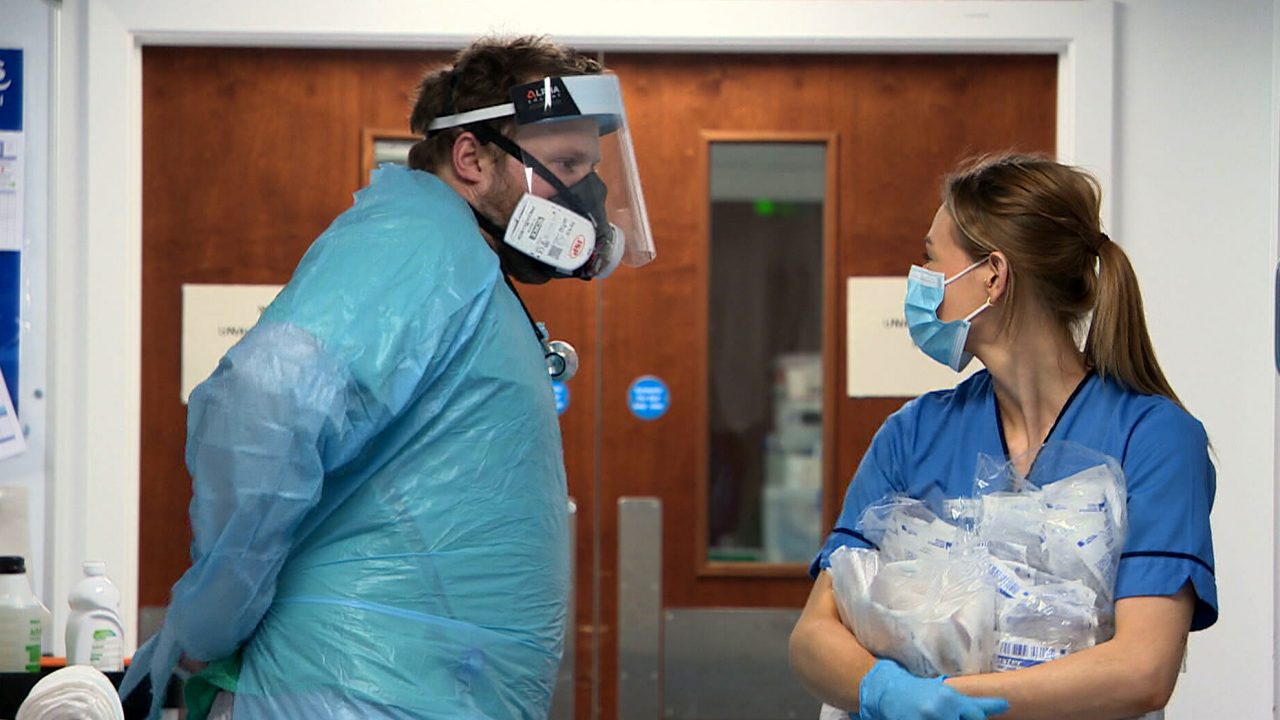 STV News
STV News




